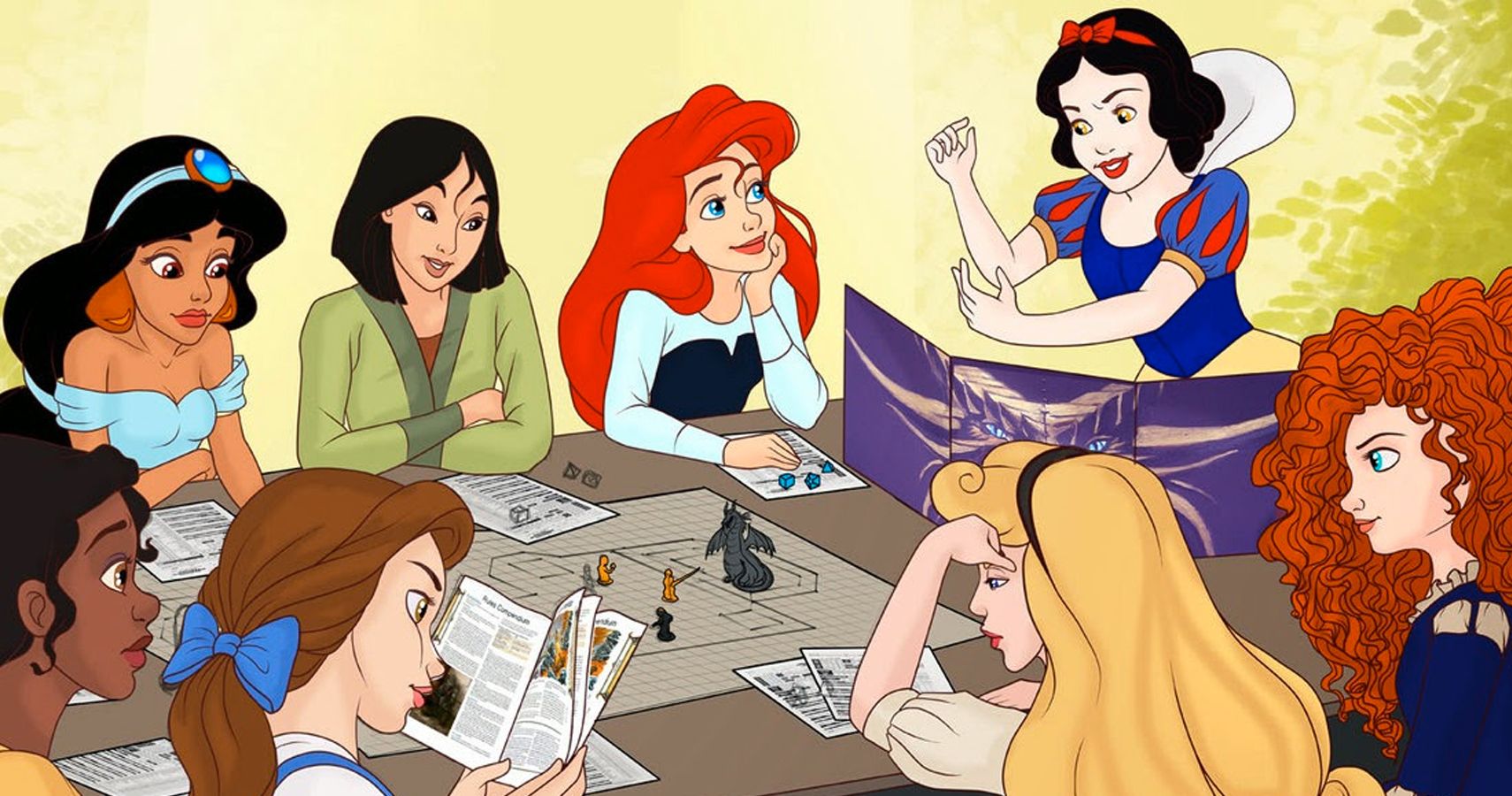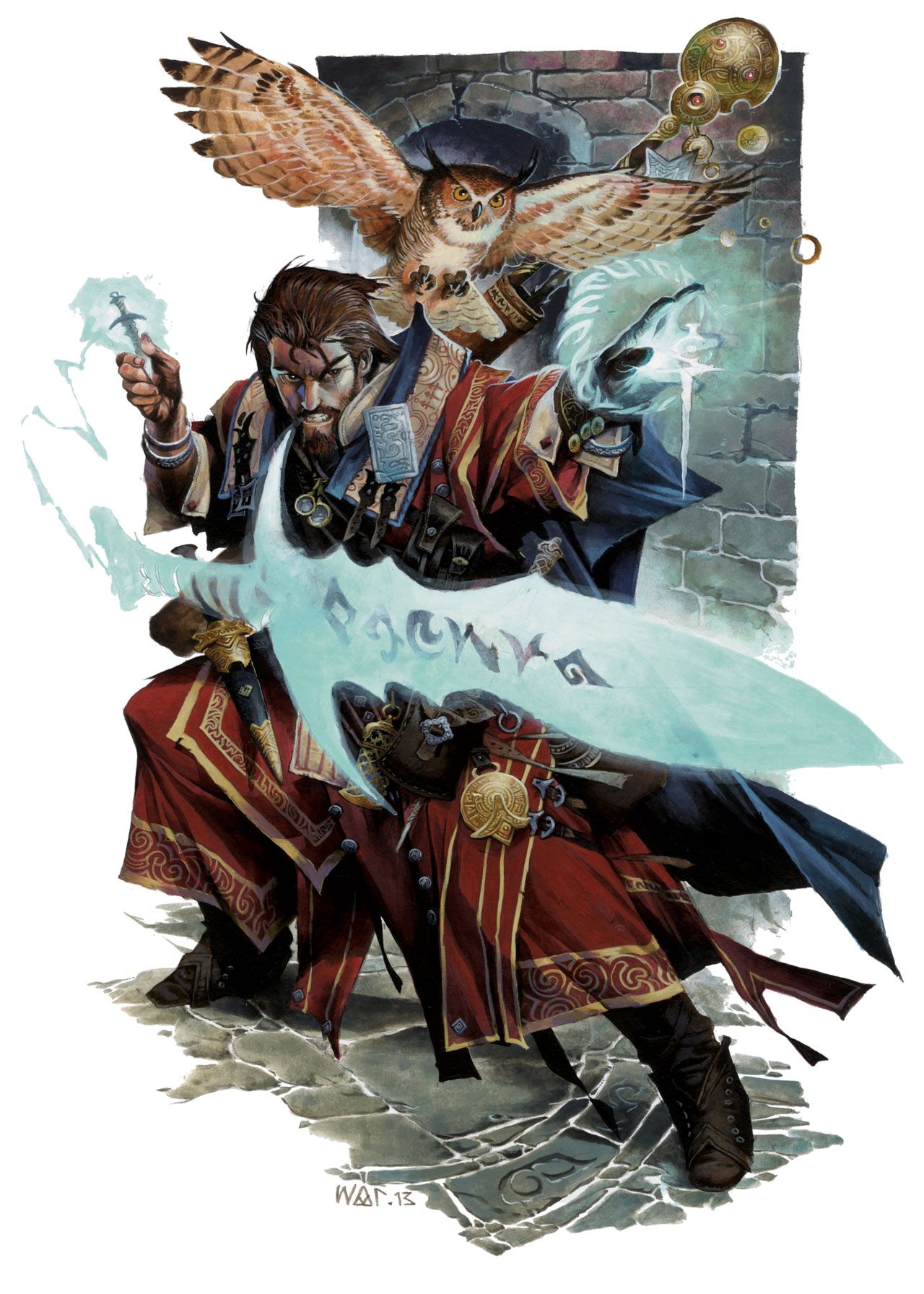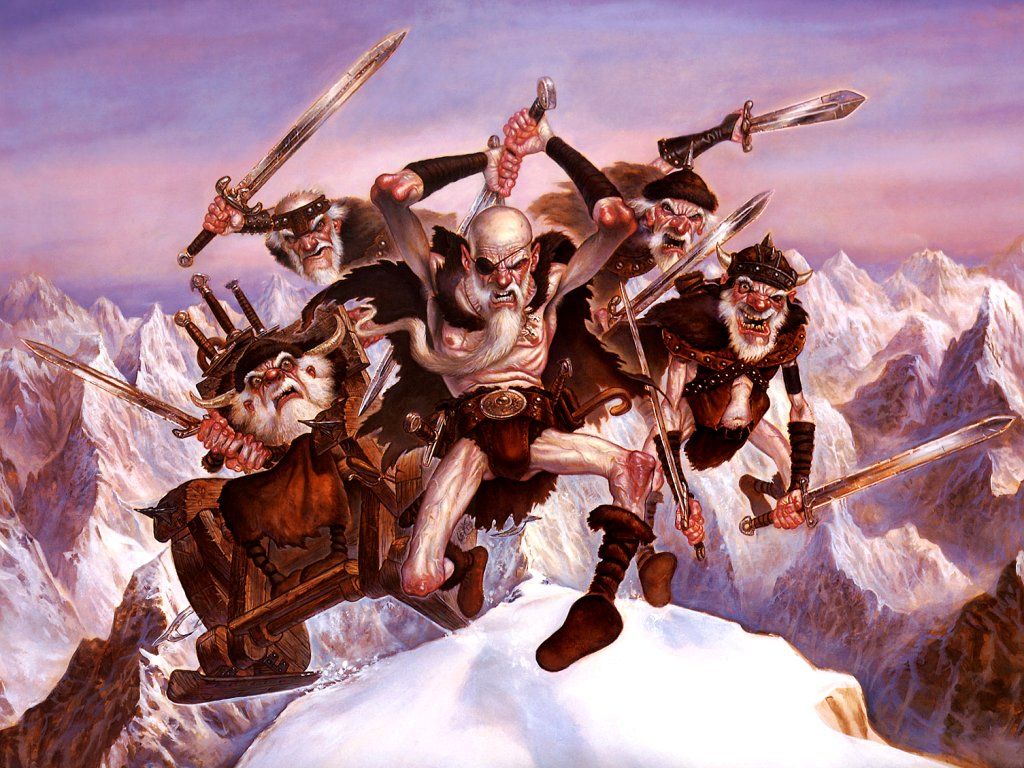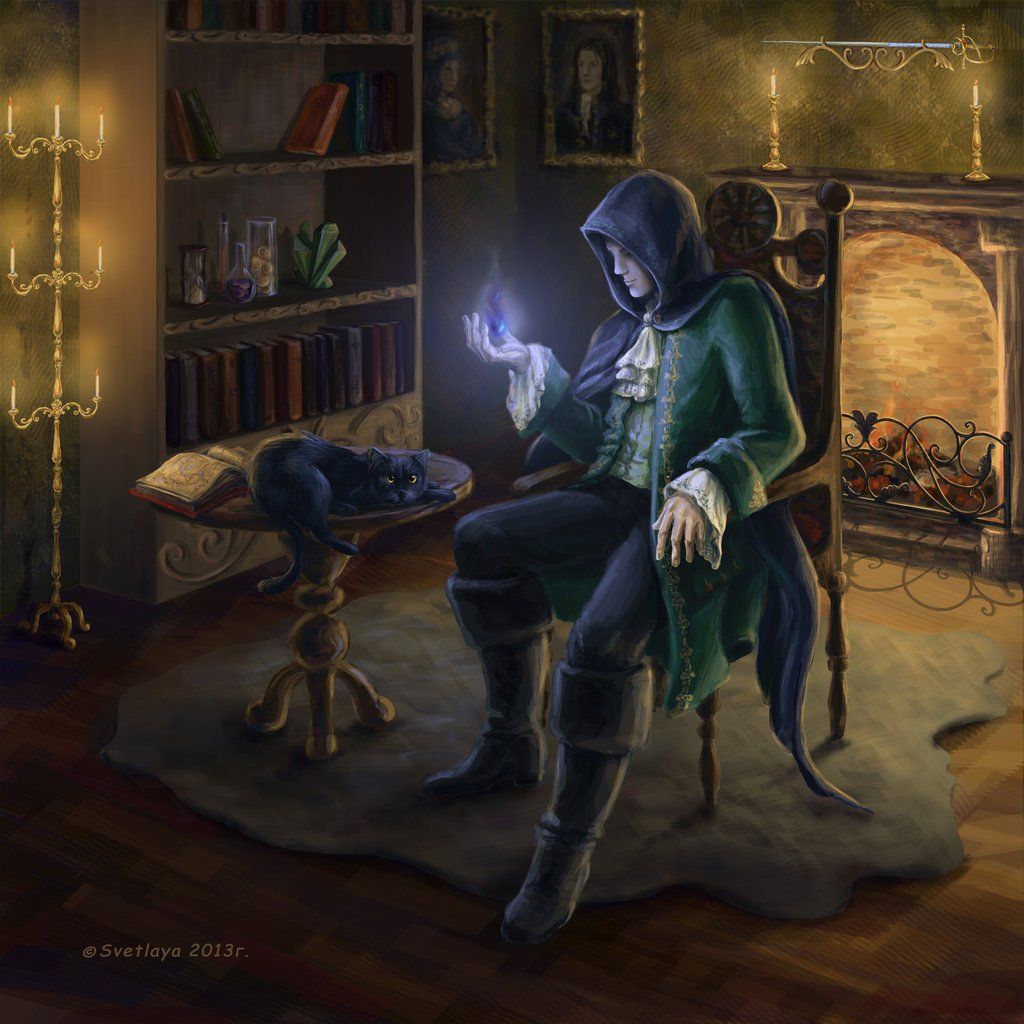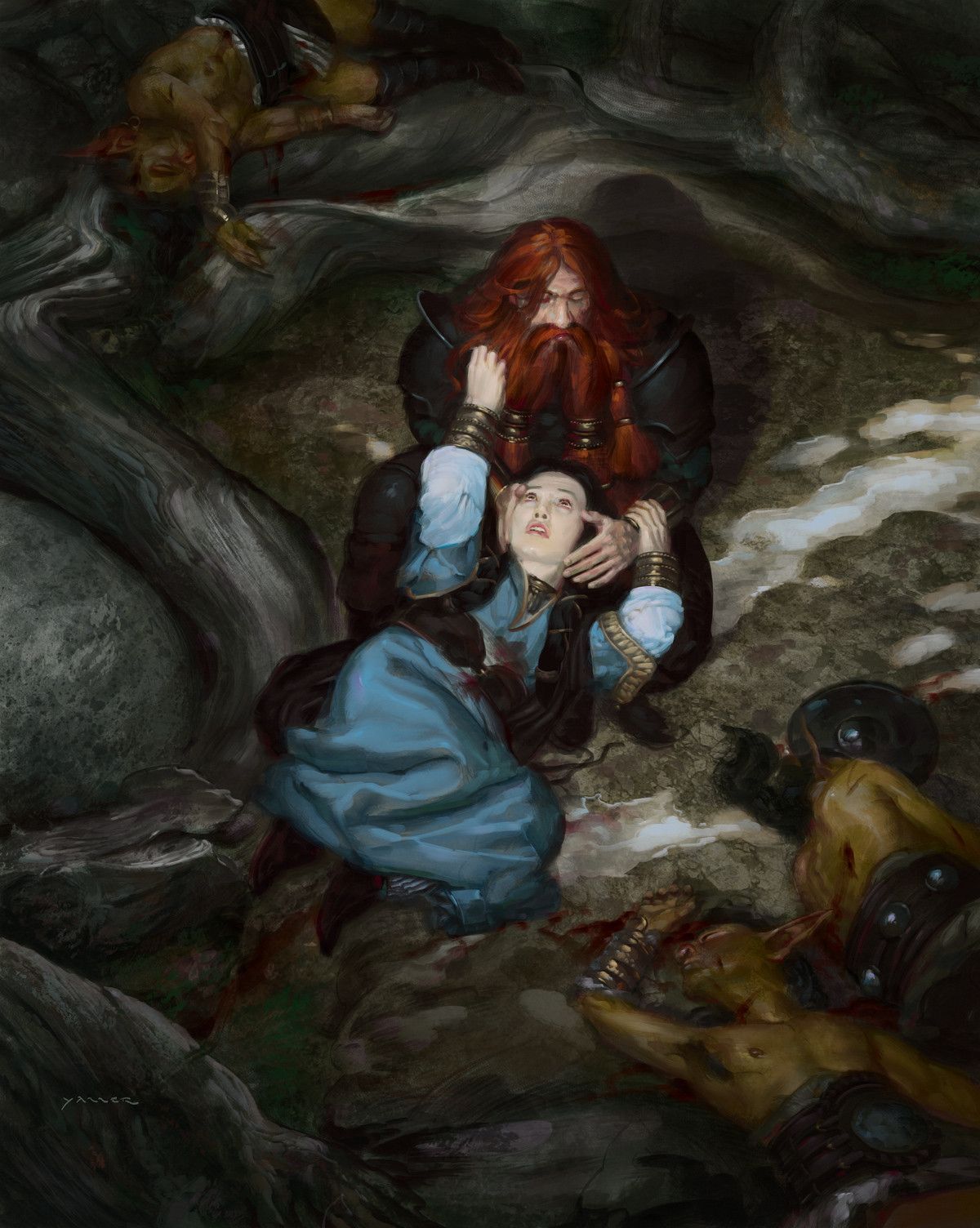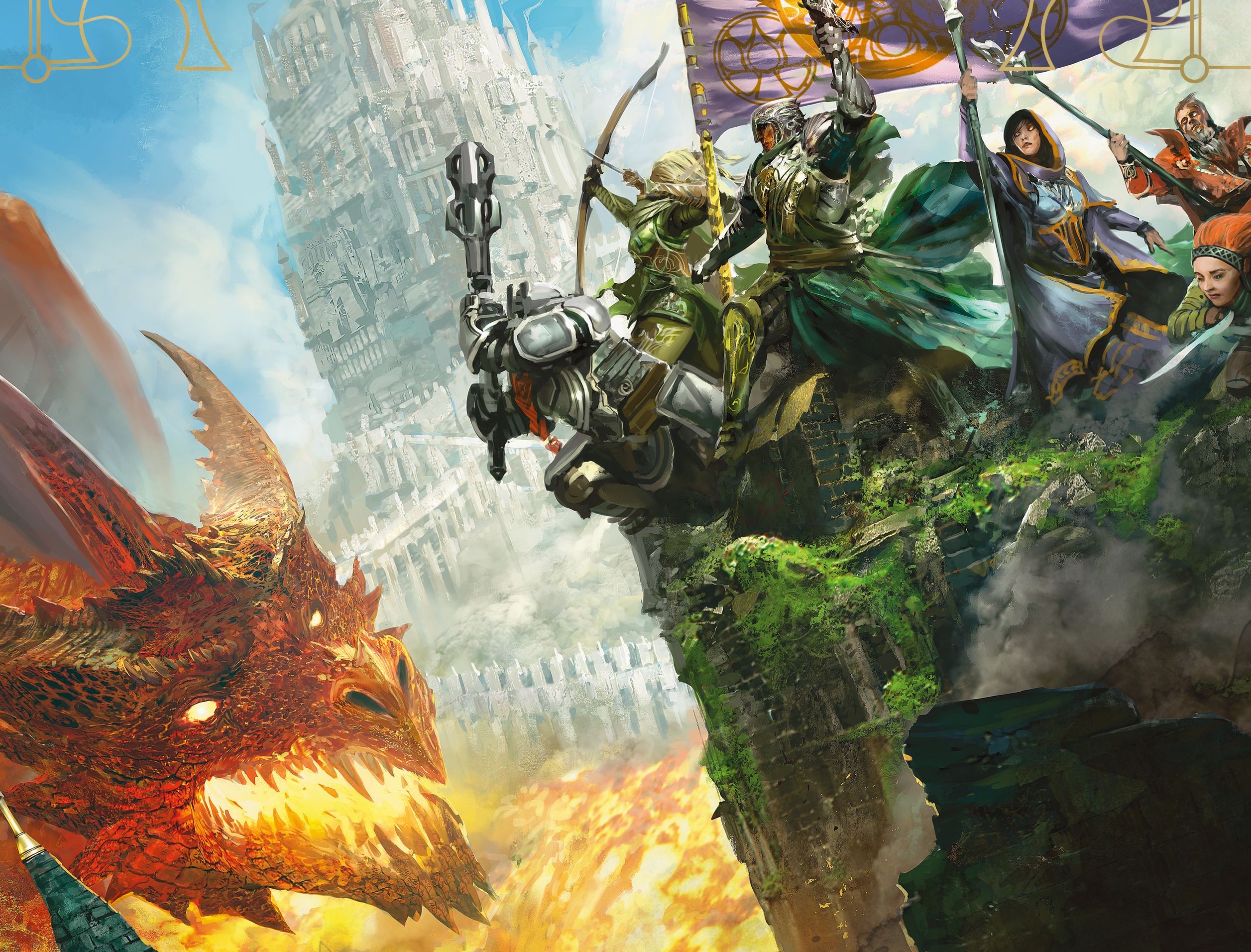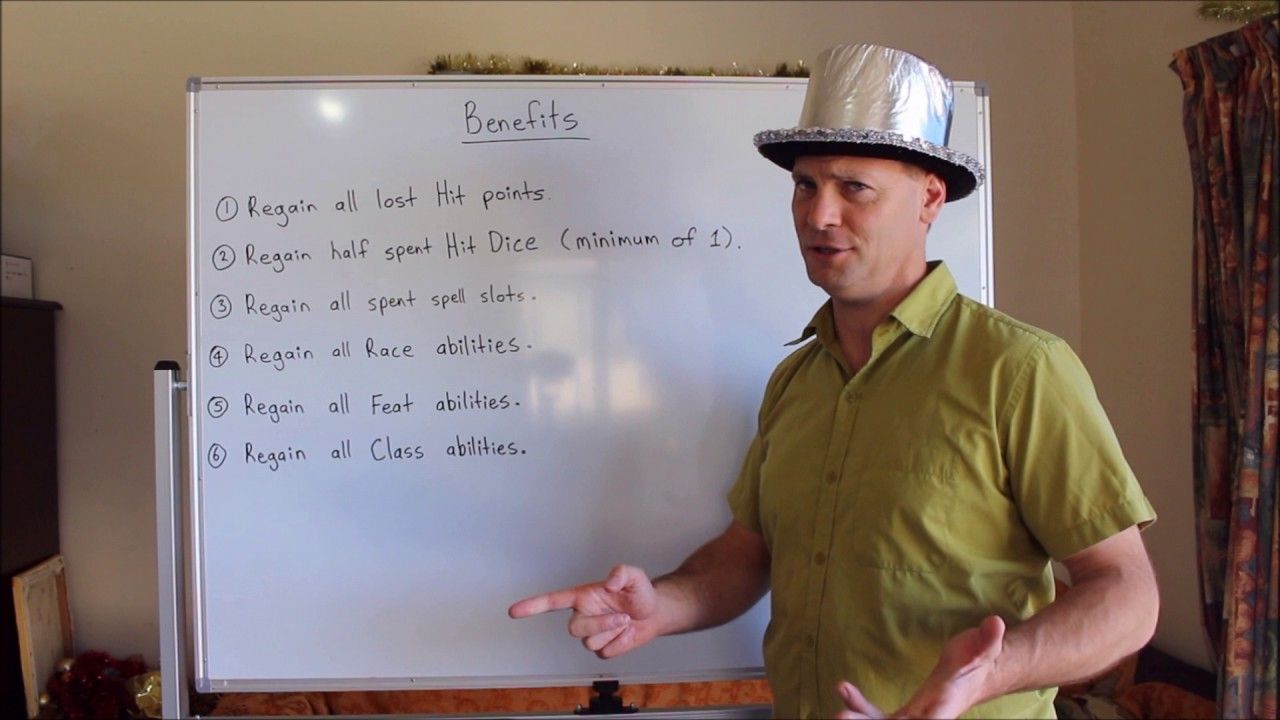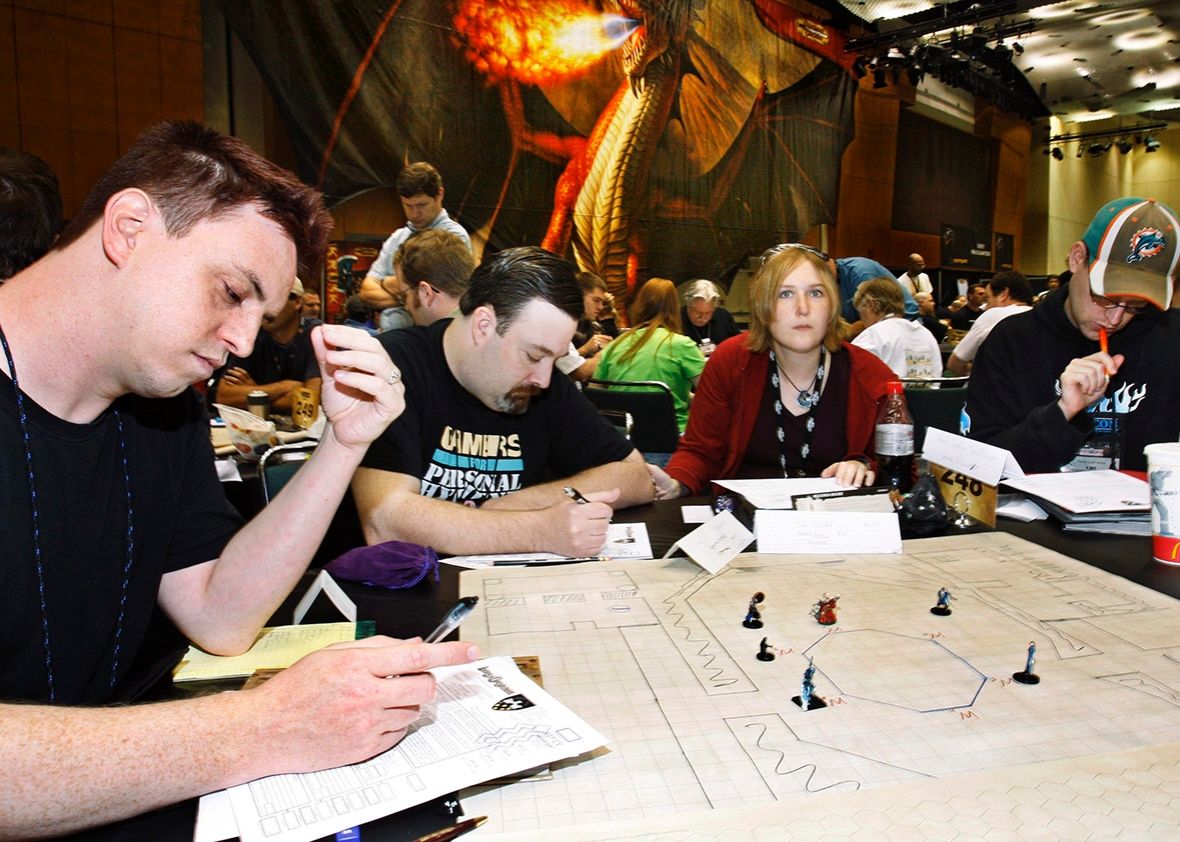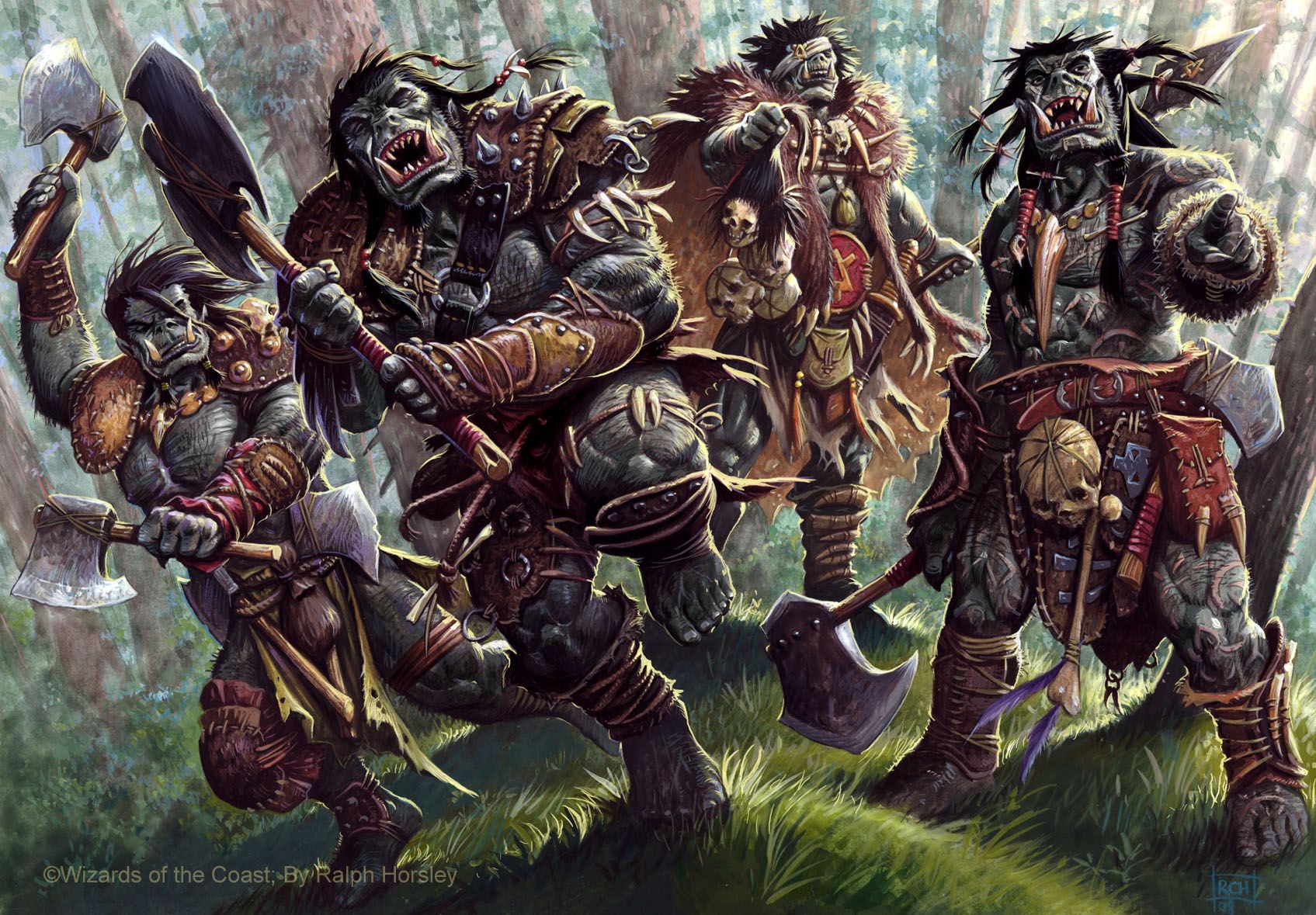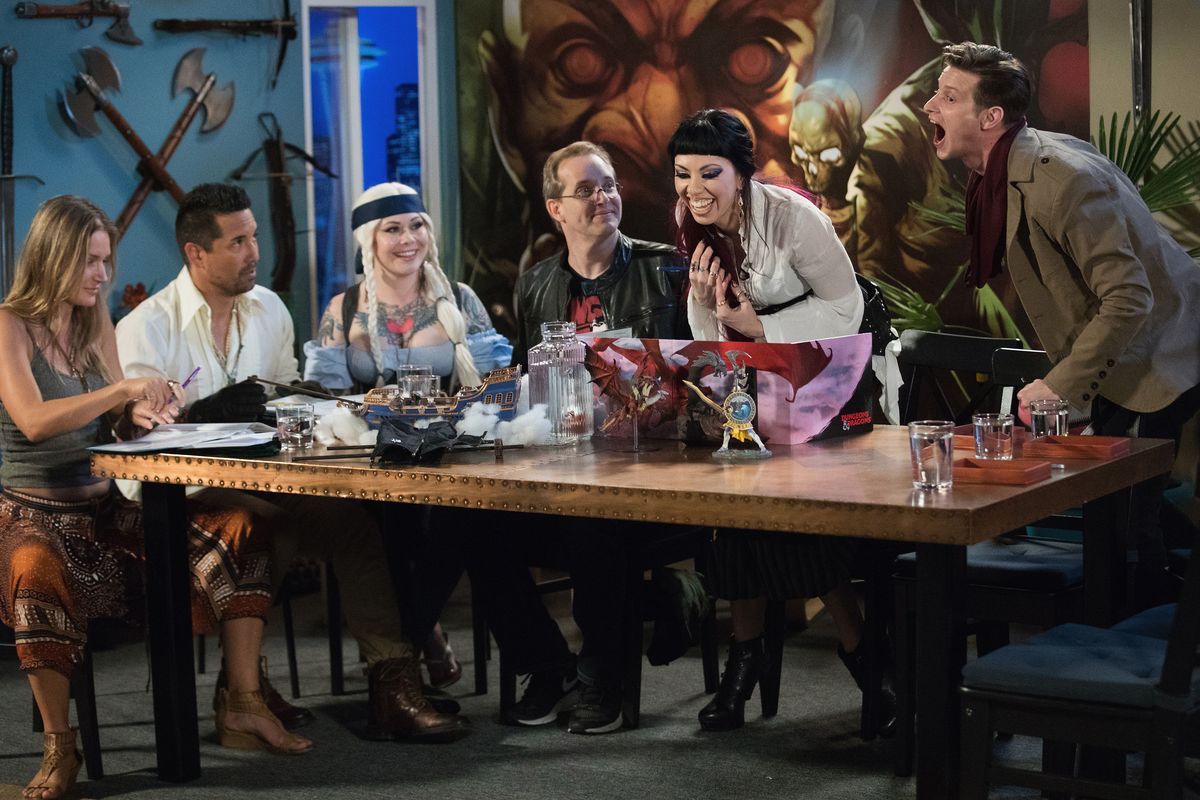Dungeons and Dragons is a popular tabletop role-playing game that has been loved and hated, played and refreshed since the 1970s. Spanning five editions and several spin-offs (including one in the Star Wars universe), it's not hard to believe that a game this long-lasting would need some basic rules. Nearly everyone knows about the ability to use magic and weapons, but the finer points are occasionally fuzzy.
There's a reason that this game was stereotypically for nerds; there is a lot of paperwork and math involved. But the satisfaction that comes from finishing off an enemy or completing a mission is one that can't be beaten. The thing that helps the most is to have a group of people who know the rules and are willing to play by them. There are horror stories online of people who broke the rules and ruined the campaign for everyone.
That's not to say though that every broken rule is done so purposefully. In fact, the points on this list are just that: rules people don't realize they're breaking. Whether it's from lack of reading, lack of understanding of the game, or just not enough time and experience, there are different factors as to why they're on this list. Some of the points are things I've seen in my own campaigns and had to deal with. Others have (thankfully) been researched. If you're a beginner looking to get into the game or an old pro who sometimes forgets one or two things because things change from edition to edition, this is a list for you. Do take note that these are mistakes based on fifth edition's rules.
12 A Wandering Rogue
In the world of Dungeons and Dragons, there are what are called alignments. It is a system that helps you understand your character and figure out what kind of choices they would make when put in a specific situation. They span from lawful good (think Superman) to chaotic evil (read: Joker). Your character will fall somewhere in between. The hard part though is to stick to an alignment once you pick one. Rules technically get broken all the time with this.
11 The Fine Print
Magic can be a lifesaver in your campaign, especially if your caster knows what they are doing. However, not everyone takes the time to really understand their chosen abilities. There are aspects to each spell and cantrip that changes depending on the edition that are absolutely crucial. A lot of times people get caught up in the action and forget that their spell takes a few minutes to boot up, or that they need to collect very specific components before they can do anything. Not being read up can cause even the most advanced player to unintentionally break the rules.
10 Carry On My Wayward Son
For some players, combat can be a bit more complicated than they expected. With a bunch of dice to choose from and differing times to roll, it's easy to get confused. Just to set the record straight, in the fifth edition, there is no such thing as a surprise turn where you do not roll initiative.
You always roll initiative.
Even if a group of Kobolds has your party in a trap, you still roll your initiative when combat starts. Whether you personally are taken by surprise depends on whichever skill the DM tells you to roll before the battle begins.
9 Multitasker
In combat, there are a few phases allowed per turn. You generally have one movement, action, and (depending mostly on your character) a bonus action. A lot of people who don't know the rules as thoroughly might perceive this to believe that they can only use one spell at a time. This is actually false. A rule/loophole in the fifth edition is that you can use both a spell and a cantrip (free of cost spell) in one turn. A lot of players forget that the bonus action can be used for spells.
8 Good As New
As an adventurer, you want access to someone who can heal your inevitable wounds. Generally, that means someone in your party is designated healer, usually a cleric or a druid.
Paladins can heal themselves, unlike other healers.
There is another route if you can't sacrifice the fighting ability to have a full-blown healer. Any paladin can heal with 'lay on hands'. With most healing abilities, you can only heal others. But with paladins, you can actually heal yourself, which is a nice loophole rule that people tend to forget.
7 Watch Your Step
There are surprisingly quite a few integral changes between the fourth and fifth editions that can keep people from avoiding trouble in their games. One of these is the way movement works in combat. In the fourth edition, you could move a square (five feet) away from an enemy if you needed to regroup. In the fifth edition, you can still do that, but it gives your enemy a chance to swing at you as you retreat called an attack of opportunity. I personally have seen this slight change affect party members, as the editions changed, and it led to some crippling blows.
6 No Pause Button
Once again, a change in editions can change the way that players run their characters. In this case, it means that you have a harder time retreating from battle, just like the last entry. In the fourth edition, you are able to delay your initiative in case you need to come up with plan B. In the fifth edition, you can still change strategies, but you have to give up your turn to do so. For example, instead of being able to tell the DM that you need a minute, you must spend your turn defending.
5 A Longer Time Out
Changing specifics of the overworld is to be expected when making a new version of an old game. That's why some groups have trouble with understanding how short rests go. A short rest will allow your characters to gain back some magic or abilities and have the opportunity to heal up after combat.
Short rests are longer than you think.
In previous editions, a 'short rest' was only five minutes and a long rest was a full eight hours. In the fifth edition, a short rest is an hour long, creating some trouble in time-sensitive situations.
4 A Well-Made Plan
This perhaps falls more under etiquette than rules, but is still something that some players struggle with: having your turn figured out before you go. This is a big thing when you have a large group and everyone wants to participate in combat. One general rule of thumb is to have your turn decided and maybe even your dice rolled when the DM gets to you. (Remember not to fudge any rolls though! It's easy to be tempted to do this, but you must resist).
3 Heed My Warning
If paying attention is not a formal rule, it should be. Your DM (or GM, they're the ones who are narrating your story) has spent a long time putting your campaign together and they deserve to be heard.
Paying attention helps make the game fun.
Many times the world building they set up will help you on your way. If you don't listen to them the first time, not only is it rude, but you miss out on an experience and make others annoyed. Most groups have a no technology rule when they play.
2 A Solo Career
Okay, so you're a half-orc barbarian with an anger problem. That means you're probably a great asset to the team in combat, but there is an old adage for you to remember: there is no 'i' in team. Unfortunately, this is a problem some players have. They get angry when someone else 'steals their glory' or if they get knocked unconscious and can't show off their slick moves. Keep in mind the monk probably has a pretty neat ability they're charging up in order to help YOU survive.
1 Carry A Big Stick
Part of the charm of Dungeons and Dragons is the role-playing aspect of it. Every character is given the chance to utilize skills that help more on the home front than on the battlefront. But they never will get to use it if you play a character who hits first and then talks later. Being mindful that other characters have some great persuasion skills can enrich your session all the more. Allowing for roleplay is half the game and should be an inherent rule.
Mr Gorbachev, Tear Down This (4th) Wall
[caption id="attachment_270865" align="alignnone" width="1200"]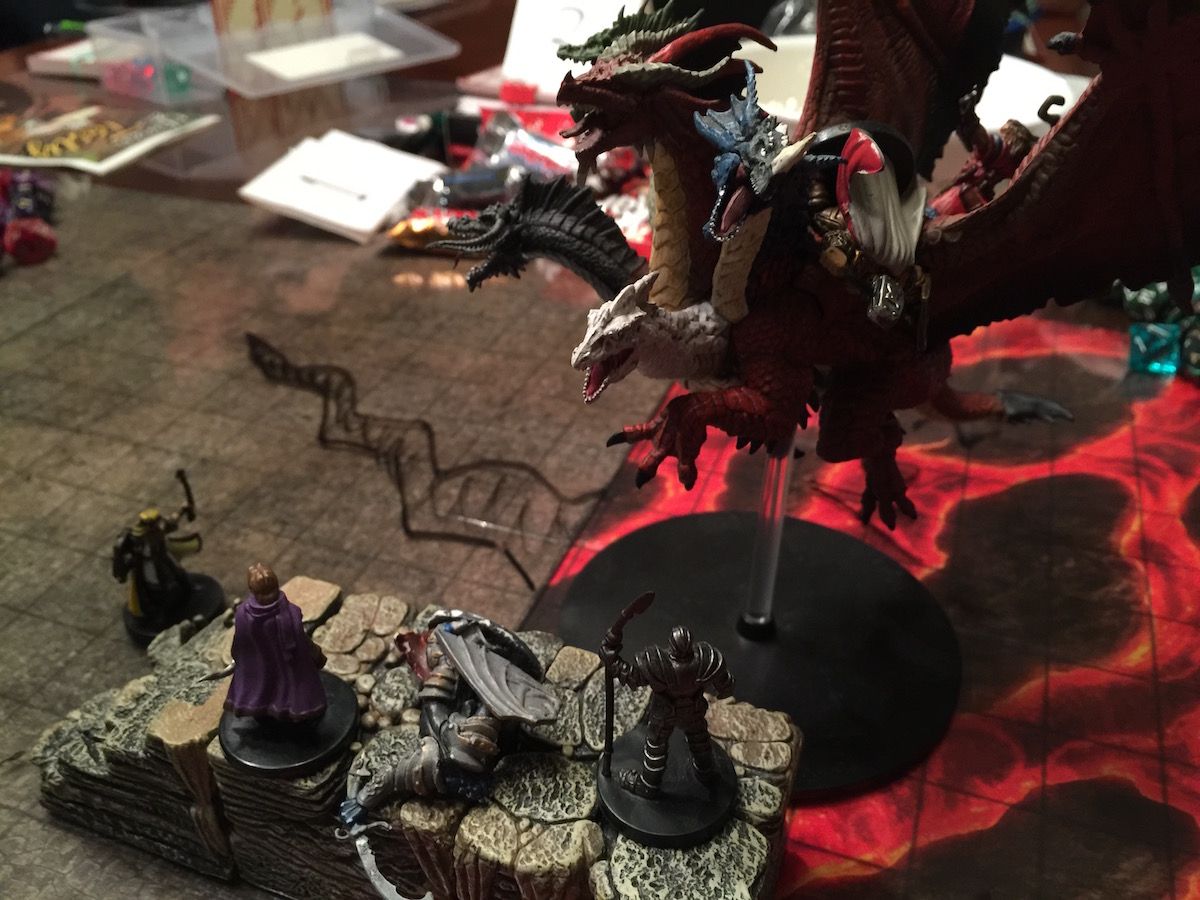 via: slyflourish.com[/caption]
One of the things we love in our media is when the fourth wall is broken and lines between reality and the imagined are blurred. One thing that quickly destroys a campaign, though, is a player who does the same thing.
Keep in mind what your character knows.
There are two different types of knowledge: player knowledge and character knowledge. They're oil and vinegar: never supposed to mix. Yet some people have been known to break this rule and make their characters work based on player knowledge. It just ruins the fun for everyone else.
via: slyflourish.com[/caption]
One of the things we love in our media is when the fourth wall is broken and lines between reality and the imagined are blurred. One thing that quickly destroys a campaign, though, is a player who does the same thing.
Keep in mind what your character knows.
There are two different types of knowledge: player knowledge and character knowledge. They're oil and vinegar: never supposed to mix. Yet some people have been known to break this rule and make their characters work based on player knowledge. It just ruins the fun for everyone else.
Too OP
[caption id="attachment_270866" align="alignnone" width="810"]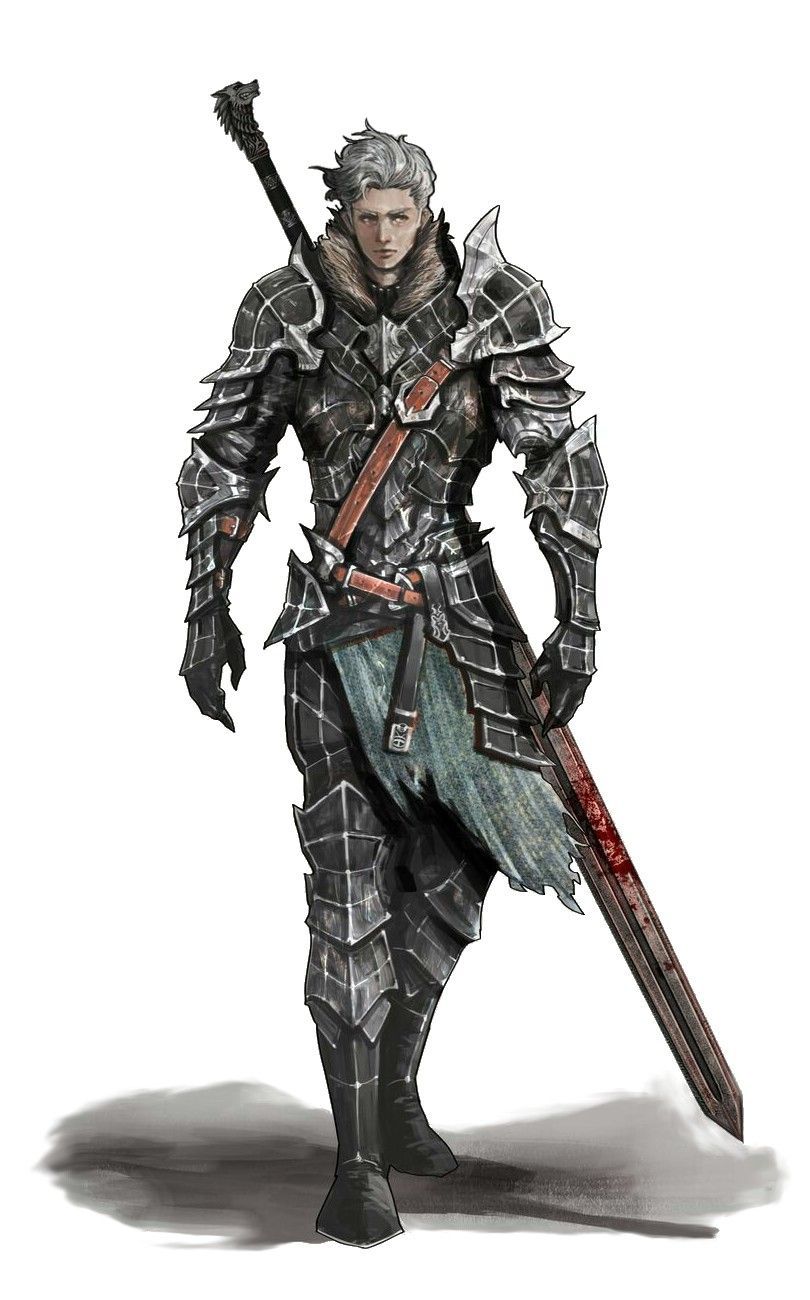 via: pinterest.com[/caption]
Part of creating a character is giving them a reliable weakness. It can be fun; make them incredibly greedy, or have some sort of desire for something absolutely nuts, like mead or hats. What your character's weakness is plays into how you play them. The fifth edition has ways around this, but other editions didn't have much to stop you from giving yourself a lame weakness in order to make yourself overpowered. It makes everyone else annoyed and takes the fun out of playing.
via: pinterest.com[/caption]
Part of creating a character is giving them a reliable weakness. It can be fun; make them incredibly greedy, or have some sort of desire for something absolutely nuts, like mead or hats. What your character's weakness is plays into how you play them. The fifth edition has ways around this, but other editions didn't have much to stop you from giving yourself a lame weakness in order to make yourself overpowered. It makes everyone else annoyed and takes the fun out of playing.
Be Prepared
[caption id="attachment_270867" align="alignnone" width="1365"]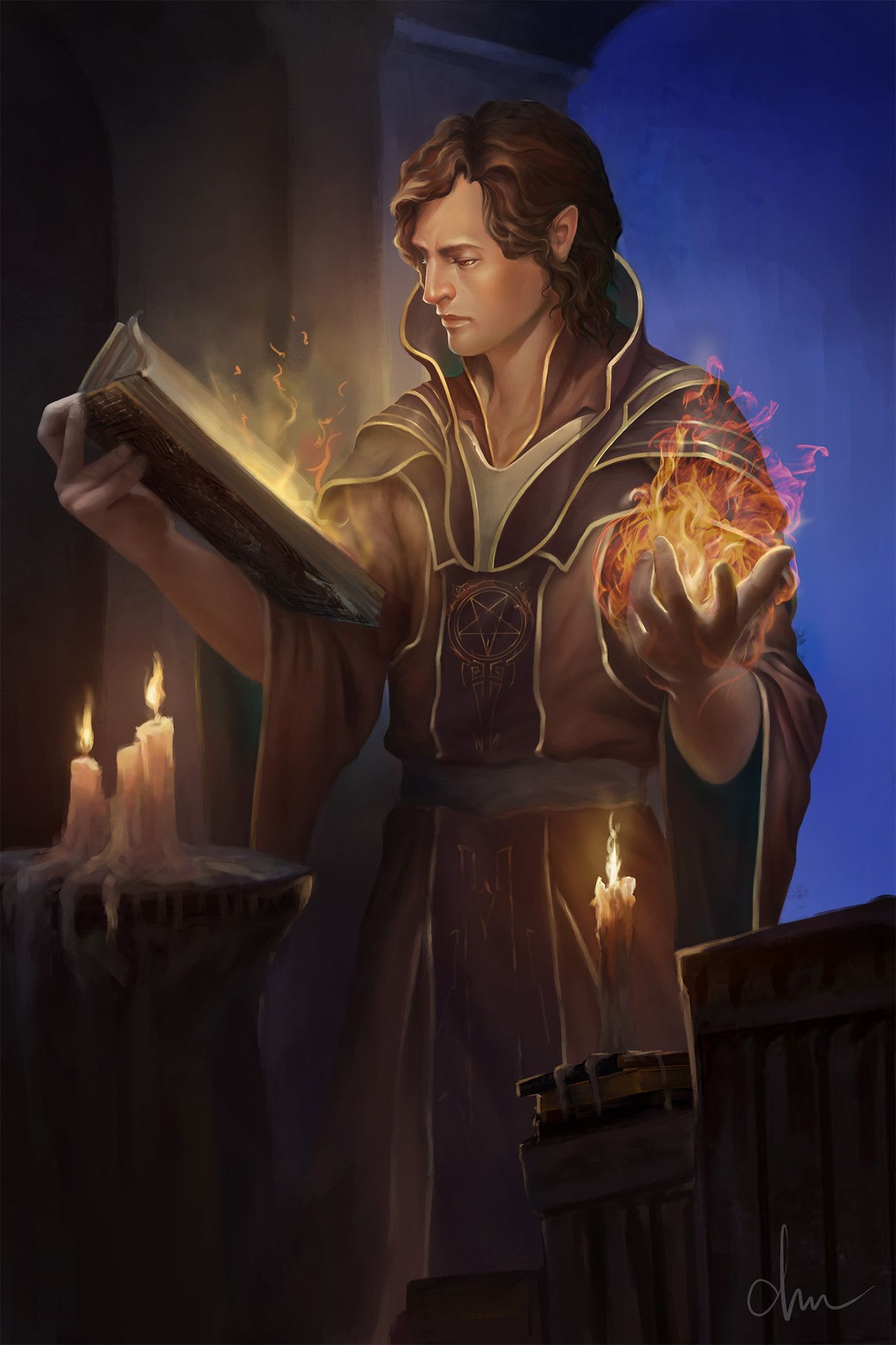 via: pinterest.com[/caption]
This is much more of a tip for a new player, but keeping a note card with all spells and cantrips will save you so much trouble. Most character sheets don't have space to write out the full spell, and when you don't have the full instructions, you tend to do the spell wrong (see earlier). It's a rule that you do each spell correctly, and flipping pages can be a hassle. When you are prepared (which is kind of common sense with this game), you can do some amazing things.
via: pinterest.com[/caption]
This is much more of a tip for a new player, but keeping a note card with all spells and cantrips will save you so much trouble. Most character sheets don't have space to write out the full spell, and when you don't have the full instructions, you tend to do the spell wrong (see earlier). It's a rule that you do each spell correctly, and flipping pages can be a hassle. When you are prepared (which is kind of common sense with this game), you can do some amazing things.
A Simple Mistake
[caption id="attachment_270868" align="alignnone" width="1920"] via: enworld.com[/caption]
Similar to misreading spells, misreading abilities can lead to rule-breaking as well. In Dungeons and Dragons, you have extra powers called feats which allow you to do some pretty incredible things.
Knowing your abilities keeps the game interesting.
But just like spells, they have limitations and should be followed directly. For example, Hunter's Mark is one that is incorrectly followed. Not only is that breaking the rules, but you also lose out on the ability to use the skill to its maximum potential. Make sure to read, everybody!
via: enworld.com[/caption]
Similar to misreading spells, misreading abilities can lead to rule-breaking as well. In Dungeons and Dragons, you have extra powers called feats which allow you to do some pretty incredible things.
Knowing your abilities keeps the game interesting.
But just like spells, they have limitations and should be followed directly. For example, Hunter's Mark is one that is incorrectly followed. Not only is that breaking the rules, but you also lose out on the ability to use the skill to its maximum potential. Make sure to read, everybody!
What Do Your Special Eyes See?
[caption id="attachment_283091" align="alignnone" width="1600"]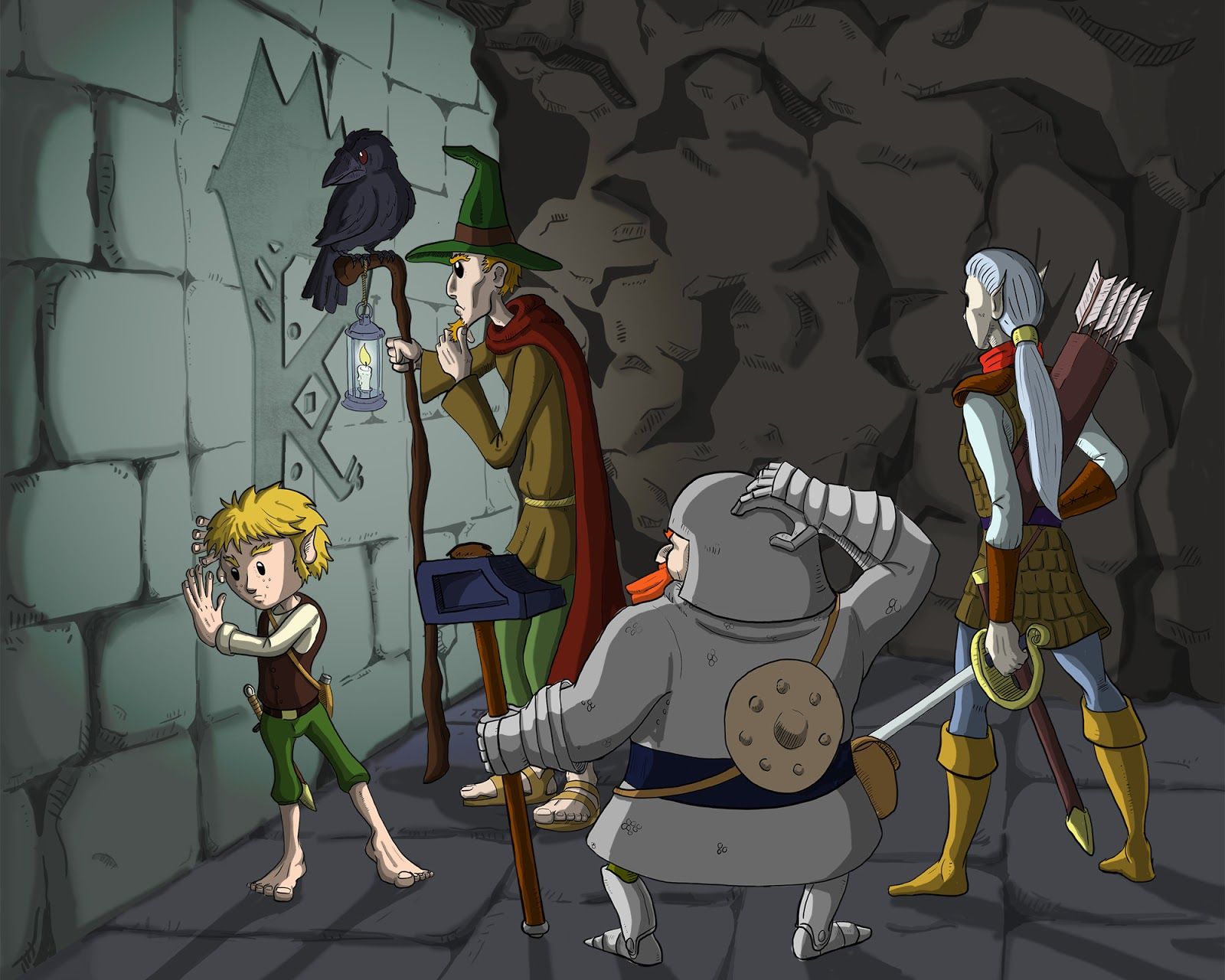 via: realmsofauria.blogspot.com[/caption]
Nearly every time Dungeons and Dragons is portrayed, someone is doing some kind of check. One of the most important and overused is the perception check. When going into a new area, it is useful so that you can get a good idea of what to expect. However, if you're always asking the DM what you see, not only will you probably end up a dragon's meal via the DM, you run the risk of being left being left behind by your teammates. It's obnoxious and really against the rules as the DM can't tell you everything they planned.
via: realmsofauria.blogspot.com[/caption]
Nearly every time Dungeons and Dragons is portrayed, someone is doing some kind of check. One of the most important and overused is the perception check. When going into a new area, it is useful so that you can get a good idea of what to expect. However, if you're always asking the DM what you see, not only will you probably end up a dragon's meal via the DM, you run the risk of being left being left behind by your teammates. It's obnoxious and really against the rules as the DM can't tell you everything they planned.
Play Nice
[caption id="attachment_270869" align="alignnone" width="1024"]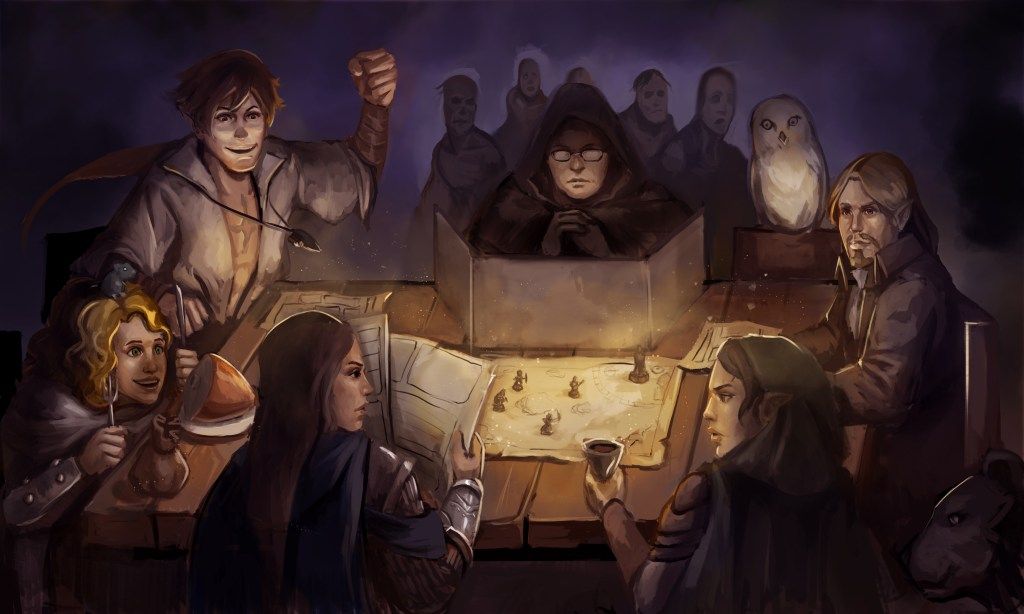 via: nerdarchy.com[/caption]
The core aspect of Dungeons and Dragons is the role-playing. Creating a world with friends and being the heroes it needs is the draw of the game. So if the DM is role-playing as a weapons smith and you won't reply in character, it's really hard to immerse the whole team into the world. It's great that you want to play and maybe you're not sure exactly who your character is yet. Role-playing will get you there. Otherwise, you may as well play a video game.
via: nerdarchy.com[/caption]
The core aspect of Dungeons and Dragons is the role-playing. Creating a world with friends and being the heroes it needs is the draw of the game. So if the DM is role-playing as a weapons smith and you won't reply in character, it's really hard to immerse the whole team into the world. It's great that you want to play and maybe you're not sure exactly who your character is yet. Role-playing will get you there. Otherwise, you may as well play a video game.
Who's Your Deity?
[caption id="attachment_270870" align="alignnone" width="900"]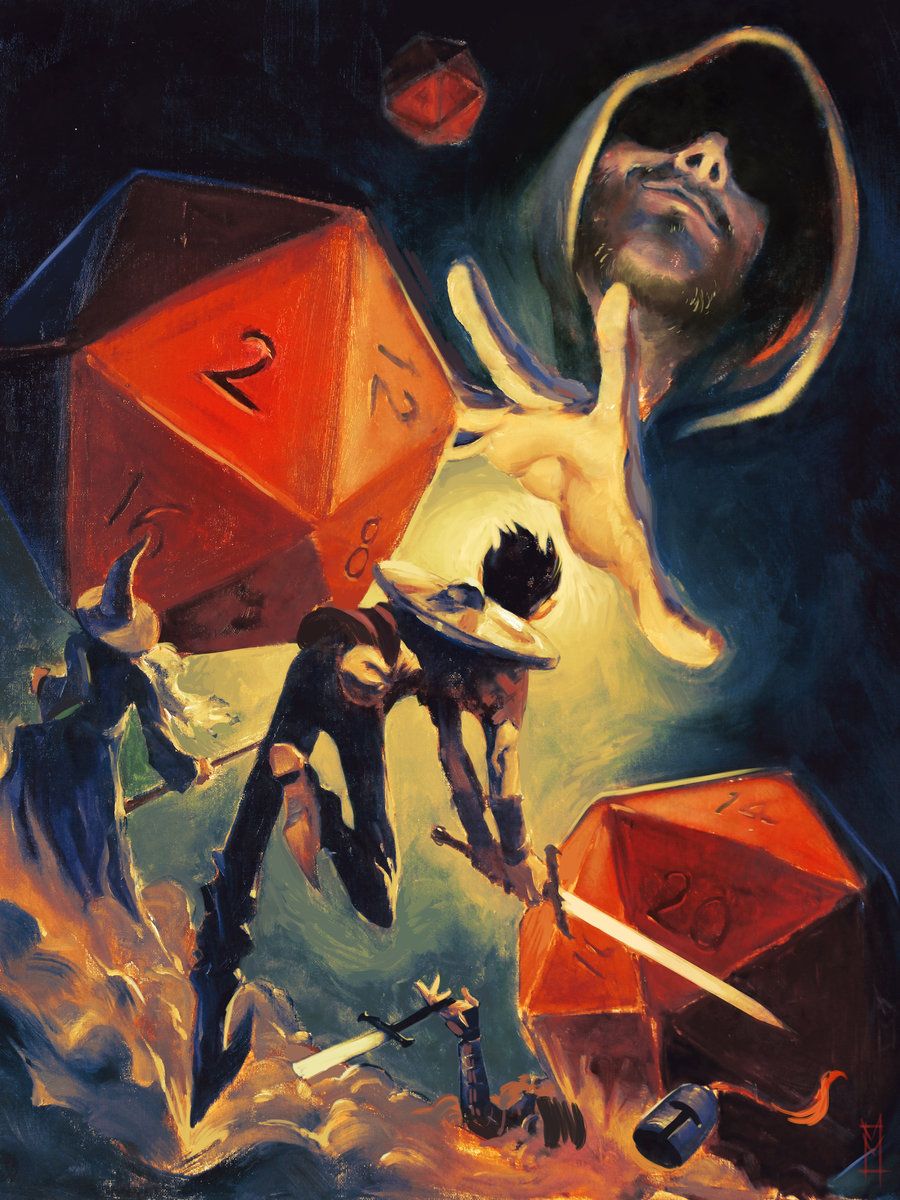 via: geeknative.com[/caption]
For all intents and purposes, the DM has the last word. They are the puppeteer and you follow their rules. They may not always follow the rules either, and if there's a disagreement the best thing to do is follow what they say and talk about it after. The game is set up that the DM knows more than the player and understands the consequences of the player's actions. By arguing with the DM, it's like you're arguing with the stove for getting hot.
via: geeknative.com[/caption]
For all intents and purposes, the DM has the last word. They are the puppeteer and you follow their rules. They may not always follow the rules either, and if there's a disagreement the best thing to do is follow what they say and talk about it after. The game is set up that the DM knows more than the player and understands the consequences of the player's actions. By arguing with the DM, it's like you're arguing with the stove for getting hot.
A Fine Line
[caption id="attachment_270871" align="alignnone" width="1024"]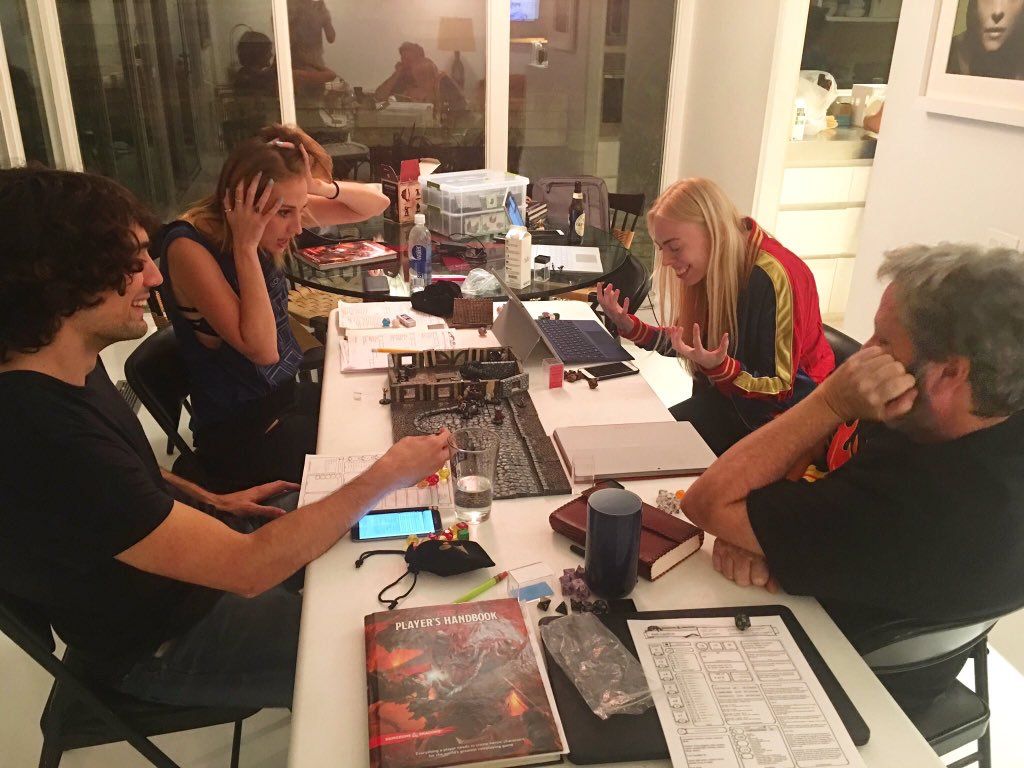 via: twitter.com[/caption]
We've covered not playing your character enough, but how about the other end of the spectrum? When you play your character TOO intensely, you're also breaking the rules (to a point). Do you play a rogue? Cool. They might pickpocket, but not the entire inn. When you play your character too harshly, it also ruins the evening for everyone. In order to fix this, simply look at what your character would actually do. Instead of pickpocketing everyone, just go for those who look like they have a fat purse.
via: twitter.com[/caption]
We've covered not playing your character enough, but how about the other end of the spectrum? When you play your character TOO intensely, you're also breaking the rules (to a point). Do you play a rogue? Cool. They might pickpocket, but not the entire inn. When you play your character too harshly, it also ruins the evening for everyone. In order to fix this, simply look at what your character would actually do. Instead of pickpocketing everyone, just go for those who look like they have a fat purse.
Location, Location, Location
[caption id="attachment_270873" align="alignnone" width="2000"]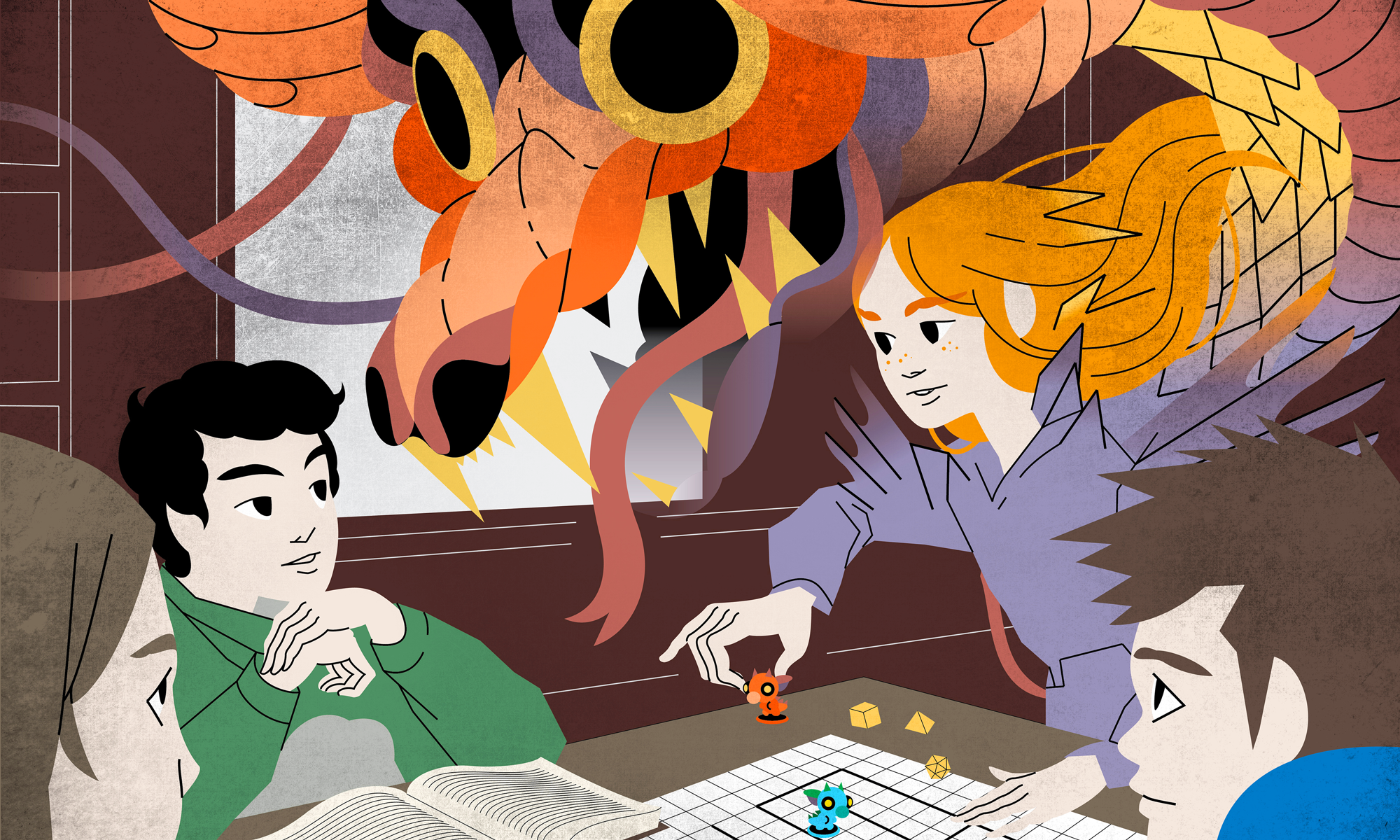 via: brightthemag.com[/caption]
You might have the best group ever and a great campaign drawn up. You might even have a room big enough for everyone. But in order to get the atmosphere right, you have to have a place to play that is comfortable.
A comfortable play area gives attention to the game.
Most evenings playing Dungeons and Dragons go on for longer than 30 minutes. We're talking hours. You don't want to be in folding chairs. Finding a location is imperative to playing, so having a good spot is following the rules.
via: brightthemag.com[/caption]
You might have the best group ever and a great campaign drawn up. You might even have a room big enough for everyone. But in order to get the atmosphere right, you have to have a place to play that is comfortable.
A comfortable play area gives attention to the game.
Most evenings playing Dungeons and Dragons go on for longer than 30 minutes. We're talking hours. You don't want to be in folding chairs. Finding a location is imperative to playing, so having a good spot is following the rules.
Make Good Choices
[caption id="attachment_270874" align="alignnone" width="2006"]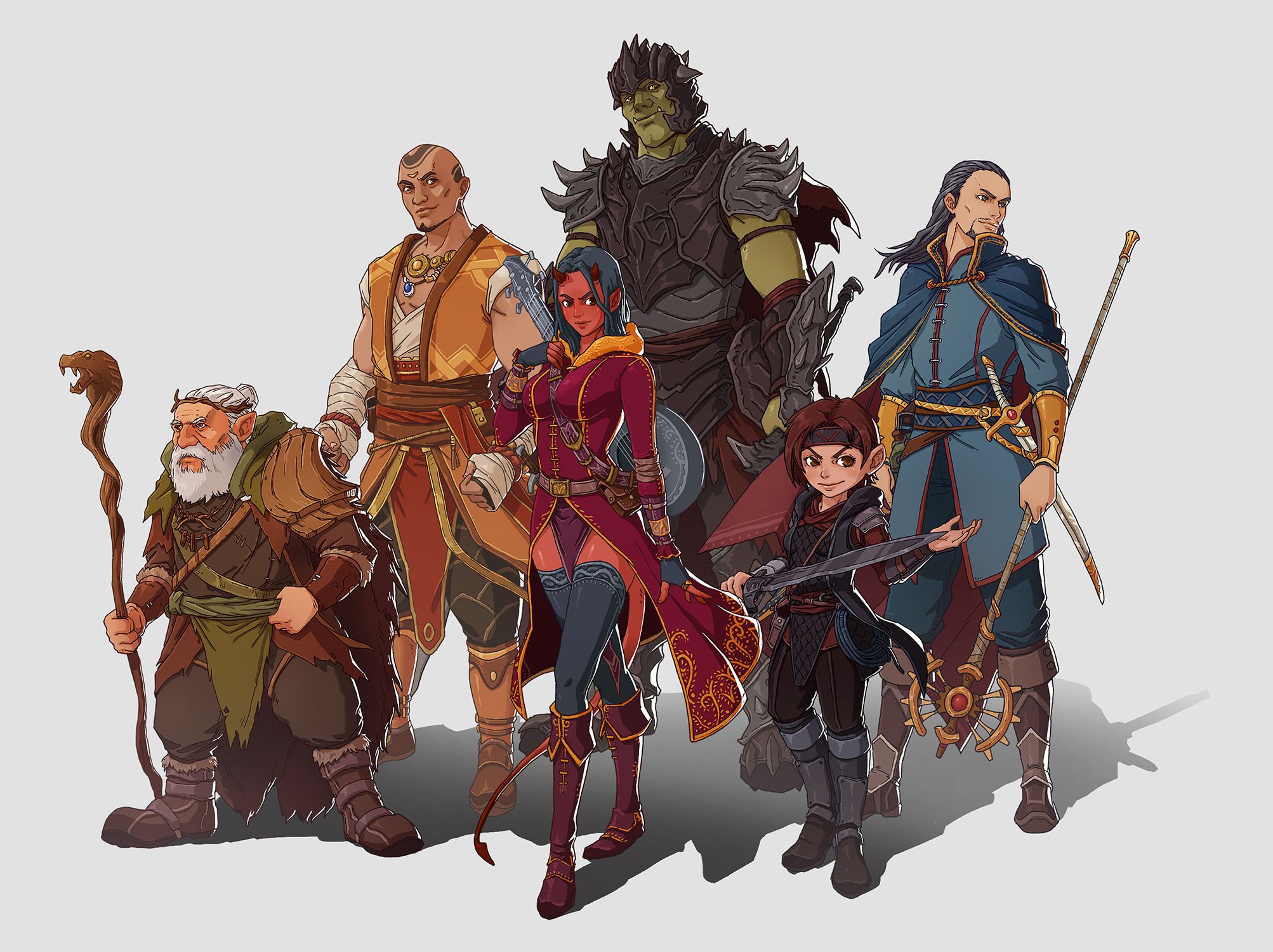 via: reddit.com[/caption]
There are good and evil alignments to fit the needs of every character and every player. I myself generally go for a lawful good character, so I tend to find teammates who are going to play somewhere in the good and chaotic spectrum. When you have one person on the team who is of an evil alignment, that's when it gets hard. Part of the game is compromise. Your alignments are part of who you are, and how you get along. It's important to get along with your friends, so consider that when you're making your character.
via: reddit.com[/caption]
There are good and evil alignments to fit the needs of every character and every player. I myself generally go for a lawful good character, so I tend to find teammates who are going to play somewhere in the good and chaotic spectrum. When you have one person on the team who is of an evil alignment, that's when it gets hard. Part of the game is compromise. Your alignments are part of who you are, and how you get along. It's important to get along with your friends, so consider that when you're making your character.
Who's First To Go?
[caption id="attachment_270875" align="alignnone" width="1600"]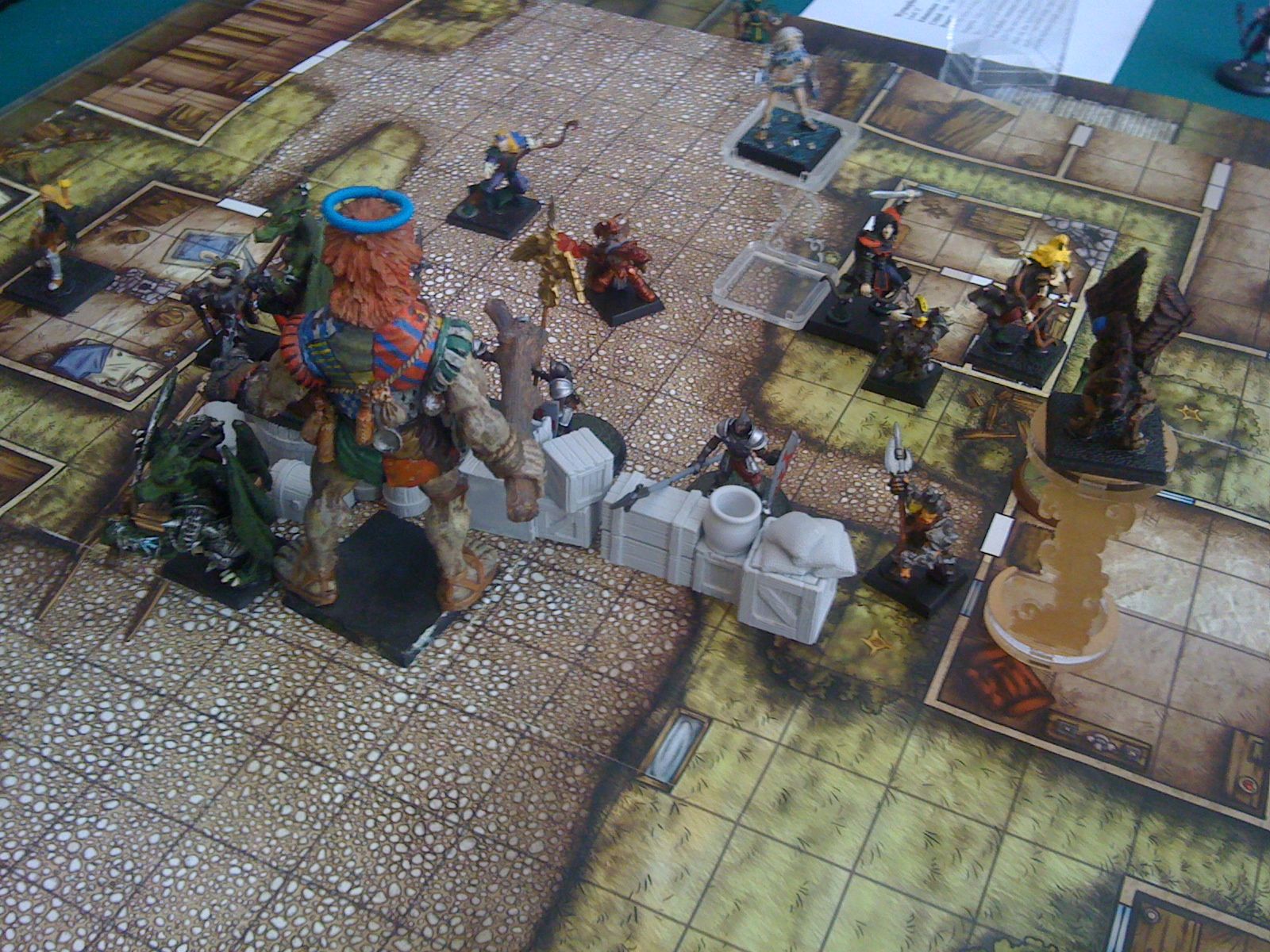 via: tribality.com[/caption]
You know when you're watching a horror flick and they decide to split up? It's the same in Dungeons and Dragons. Never split up. The DM will likely find ways to get you back together, but it generally doesn't end well for at least one of you.
Staying together will keep you going.
In the campaigns I've played, it has never ended well for those who split off from the group. You never know what's out there and there is power in numbers. Keep that in mind next time you see a pretty gem trail.
via: tribality.com[/caption]
You know when you're watching a horror flick and they decide to split up? It's the same in Dungeons and Dragons. Never split up. The DM will likely find ways to get you back together, but it generally doesn't end well for at least one of you.
Staying together will keep you going.
In the campaigns I've played, it has never ended well for those who split off from the group. You never know what's out there and there is power in numbers. Keep that in mind next time you see a pretty gem trail.
Open Weekend
[caption id="attachment_270879" align="alignnone" width="1280"] via: vimeo.com[/caption]
Adulting is hard. There is a ton to do, and when you finally get some down time, you don't want to waste it. You want to relax and hang out with friends. That's why it's incredibly important when you set your group up to make a loose schedule. It's easy to stop playing all together if you don't meet regularly. Even if it's a couple of times a month, having a schedule makes all the difference. Sometimes things come up, but if you want to keep a campaign alive, you have to actively play it.
via: vimeo.com[/caption]
Adulting is hard. There is a ton to do, and when you finally get some down time, you don't want to waste it. You want to relax and hang out with friends. That's why it's incredibly important when you set your group up to make a loose schedule. It's easy to stop playing all together if you don't meet regularly. Even if it's a couple of times a month, having a schedule makes all the difference. Sometimes things come up, but if you want to keep a campaign alive, you have to actively play it.
Rulebook, Schmulbook
[caption id="attachment_270885" align="alignnone" width="1315"] via: wordpress.com[/caption]
The base set of rules in Dungeons and Dragons surprisingly are more like house rules. Every DM and group will favor certain rules over others, even between different campaigns. It's important to know the rules that you and your friends adhere to. That's not to say the handbooks aren't helpful.
What the DM says, goes
But the first rule is that DM ultimately can change anything they need. So if you're constantly in the rulebook trying to figure out a loophole, you're technically still breaking rules.
via: wordpress.com[/caption]
The base set of rules in Dungeons and Dragons surprisingly are more like house rules. Every DM and group will favor certain rules over others, even between different campaigns. It's important to know the rules that you and your friends adhere to. That's not to say the handbooks aren't helpful.
What the DM says, goes
But the first rule is that DM ultimately can change anything they need. So if you're constantly in the rulebook trying to figure out a loophole, you're technically still breaking rules.

